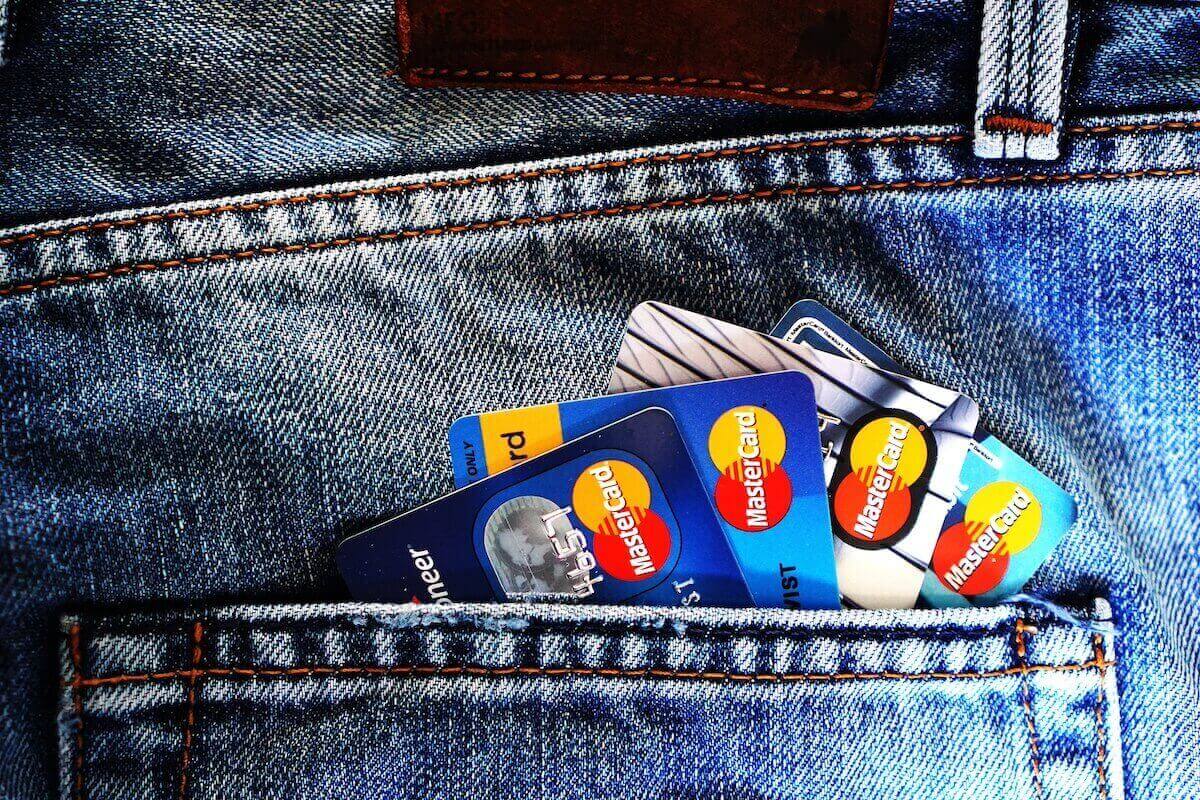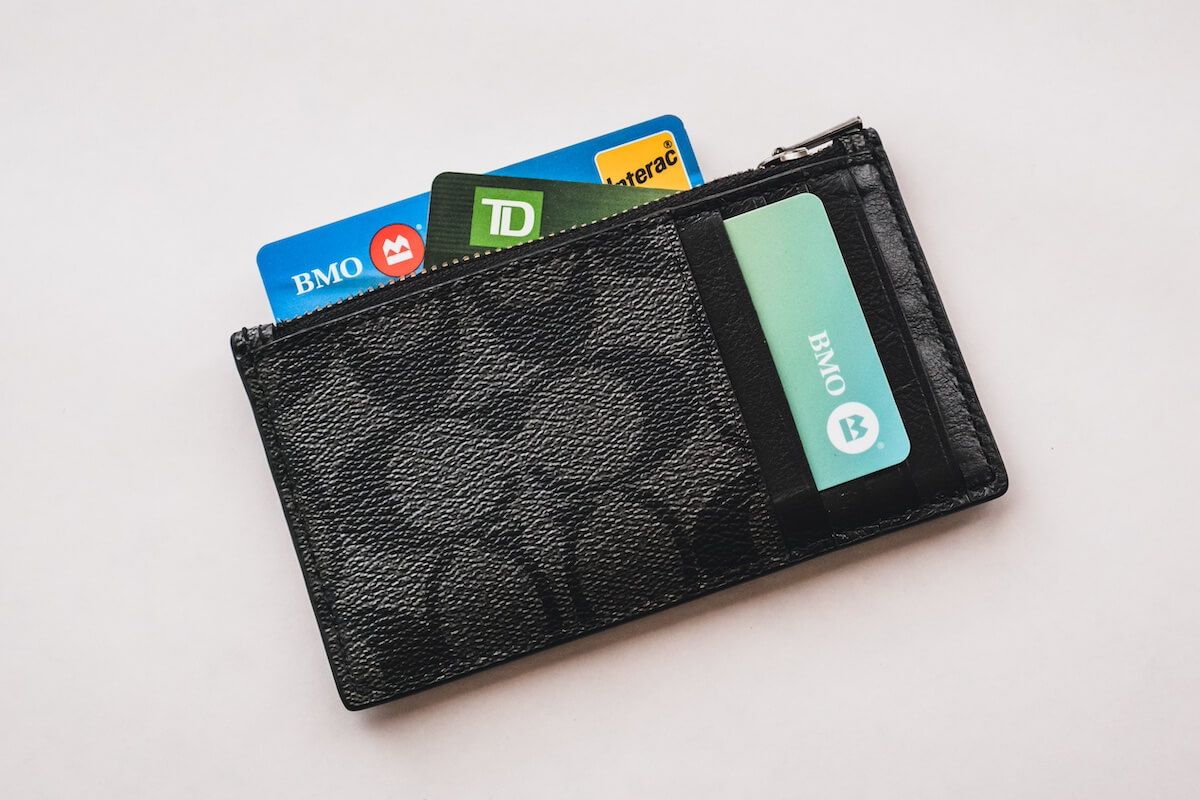Advertiser Disclosure
Last update: January 5, 2024
6 minutes read
How Credit Cards Work: A Beginner's Guide
New to credit cards? Our Beginner's Guide breaks down the essentials. From interest rates to rewards, learn how credit cards work and make smart financial choices.

By Brian Flaherty, B.A. Economics
Edited by Rachel Lauren, B.A. in Business and Political Economy
Learn more about our editorial standards


Imagine a world where every transaction you make is quick, painless, and efficient. The evolution of finance has given rise to tools that make this possible, and one of the most ubiquitous of these tools is the credit card. Unpacking the mechanics behind this tiny piece of plastic might surprise you, so let's dive into how credit cards work.

Key takeaways
- Credit cards allow people to borrow up to a certain limit to purchase or withdraw cash
- Credit cards have many fees, like annual fees, cash advance fees, late payment fees, and interest charges
- Credit card decisions should be made carefully to avoid too many hard inquiries, which can hurt credit scores
How do credit cards work?
We've all whipped out that shiny piece of plastic to make a purchase, but have you ever stopped to think about how it actually works?
Essentially, a credit card allows you to borrow money up to a certain limit from the issuing bank, which you then repay with interest if not settled by the due date. This borrowing and repayment process is done by a network of financial institutions, making transactions smooth and efficient.
Why are credit cards so popular?
Credit cards have become the "avocado toast" of the financial world, and it's not just because of the appeal of rewards and cashback. Their convenience and efficiency have made them indispensable in the 21st-century lifestyle.
Personally, I use my credit card every day to make fast and secure purchases. If you mostly use a debit card, like I used to, consider switching to a credit card for that extra layer of security.
- Ease of use: Swipe, tap, or input – and voila! Transaction complete.
- Security: With features like chip-enabled security, they are a safer bet than carrying wads of cash. They also allow you to dispute fraudulent transactions and get the money back. Even if it’s not fraudulent, but the merchant did not properly provide the service you were promised, this can also be grounds for a credit card dispute.
- Building credit: Regular and responsible use can boost your credit score, making future loans easier and potentially cheaper.
- Rewards and perks: Many credit cards offer cash back or points, which you can apply to purchases like travel. Some cards also offer perks, like discounts on certain brands or credits.
What's the catch with using credit cards?
Ah, there's always a catch, isn’t there? While credit cards might seem like a dream come true, it's essential to recognize the strings attached.
- Interest: If you're not responsible about paying off your monthly balance, you'll end up owing more than you borrowed. And trust me, those interest rates can be harsh.
- Fees: From annual fees to late payment penalties, it's not always a free ride. However, sometimes the perks of the card can more than pay for the annual fees.
- Potential debt: It's a slippery slope. One minute you're buying that must-have designer bag, and the next, you're knee-deep in debt.
How can you make the most of your credit card?
Here are some useful tips to make the most of credit cards:
- Pay on Time: This cannot be stressed enough. Always, and I mean always, pay your bill by the due date. It’s good for your pocket and your credit score - the best is to pay your bill in full, not just the minimum. If you find that you can’t pay the full statement balance, that means you spent more than you have and it’s time for a budgeting session.
- Keep Balances Low: Just because you have a $10,000 limit doesn’t mean you should use it all. Experts recommend keeping your utilization (the percentage of your limit that you use) below 30%.
- Stay Informed: Be aware of all terms, fees, and potential rate hikes. Knowledge is power, after all.
Advantages and disadvantages of credit card usage
Credit cards, like any financial tool, have their pros and cons. Let's explore both sides of the coin.
Advantages of credit cards
- Convenience: No need for cash when you have a card.
- Rewards and bonuses: Points, miles, cashbacks – the list goes on.
- Emergency funds: Unexpected expenses? Your card has got you covered, though we would suggest building an emergency fund (which is free) over using a high-interest credit card for unexpected expenses.
- Building credit: A healthy credit score can open many doors in the financial world.
- Security: Fraud protection features often make cards safer than cash.
Disadvantages of credit cards
- Interest rates: Fail to pay in full, and you're looking at hefty interest charges.
- Hidden fees: Some cards come with lurking annual fees or international transaction charges.
- Overspending: It's easy to swipe away without realizing the accumulating debt.
- Credit score damage: Missed payments can severely hurt your credit rating.
- Identity theft: In today's digital age, credit card fraud remains a pertinent concern.
Do’s and don'ts of credit card usage
Navigating the world of credit cards requires some discipline and awareness. Understanding the dos and don'ts can make all the difference in managing your credit cards responsibly.
Do
Pay off your balance monthly
Review your statements regularly
Use rewards to your advantage
Report lost or stolen cards immediately
Set up alerts for payments
Don't
Spend without a budget
Share your card details casually
Max out your credit limit
Ignore your credit score
Make late payments
How TuitionHero can help
At TuitionHero, we're here to make your student finance experience straightforward. We understand that handling credit cards can be crucial for students, and that's why we provide specially selected credit card offers designed for the student lifestyle.
Whether you need to pay for textbooks, dorm essentials, or other expenses, the right credit card can offer convenience, benefits, and rewards. But our commitment to your success goes beyond credit cards.
We know the financial challenges you sometimes face, so we offer a range of services. Whether you're looking for private student loans, loan refinancing, scholarships, or you need help with FAFSA, we've got you covered!
Final thoughts
Credit cards are useful tools. Use them wisely, and you get flexibility, rewards, and a chance to build good credit. But understanding how they work is key. You need to know the twists and turns. Stay curious and informed, so you can enjoy the benefits of credit cards without getting caught in traps.
Frequently asked questions (FAQ)
The credit limit on a card depends on many factors, mainly your creditworthiness. This includes your credit history, current income level, and your overall debt-to-income ratio. Lenders assess this information to decide how much risk they're willing to take and then decide on a credit limit that matches that risk.
Yes. Each time you apply for a credit card, the provider does a "hard inquiry" on your credit report. Multiple hard inquiries in a short span can potentially lower your credit score. It's crucial to apply for new credit carefully and make sure you genuinely need the card.
A balance transfer involves moving the debt from one credit card to another, typically to benefit from a lower interest rate on the new card. This can be a strategic move to save on interest, especially if the new card offers a promotional period with a 0% interest rate. But it's essential to be aware of any balance transfer fees and make sure you can pay off the balance before the promotional rate expires.
Yes, there are credit cards tailored for students. These cards often come with lower credit limits and are designed to help students build credit from a young age. They might also offer rewards geared towards student lifestyles, like cash back on textbooks or dining. However, as with all credit cards, it's essential to use them responsibly to avoid accumulating debt.
Sources
Author

Brian Flaherty
Brian is a graduate of the University of Virginia where he earned a B.A. in Economics. After graduation, Brian spent four years working working at a wealth management firm advising high-net-worth investors and institutions. During his time there, he passed the rigorous Series 65 exam and rose to a high-level strategy position.
Editor

Rachel Lauren
Rachel Lauren is the co-founder and COO of Debbie, a tech startup that offers an app to help people pay off their credit card debt for good through rewards and behavioral psychology. She was previously a venture capital investor at BDMI, as well as an equity research analyst at Credit Suisse.
At TuitionHero, we're not just passionate about our work - we take immense pride in it. Our dedicated team of writers diligently follows strict editorial standards, ensuring that every piece of content we publish is accurate, current, and highly valuable. We don't just strive for quality; we aim for excellence.
Related posts
While you're at it, here are some other college finance-related blog posts you might be interested in.
Shop and compare student financing options - 100% free!

Always free, always fast
TuitionHero is 100% free to use. Here, you can instantly view and compare multiple top lenders side-by-side.

Won’t affect credit score
Don’t worry – checking your rates with TuitionHero never impacts your credit score!

Safe and secure
We take your information's security seriously. We apply industry best practices to ensure your data is safe.
Finished scrolling? Start saving & find your private student loan rate today





